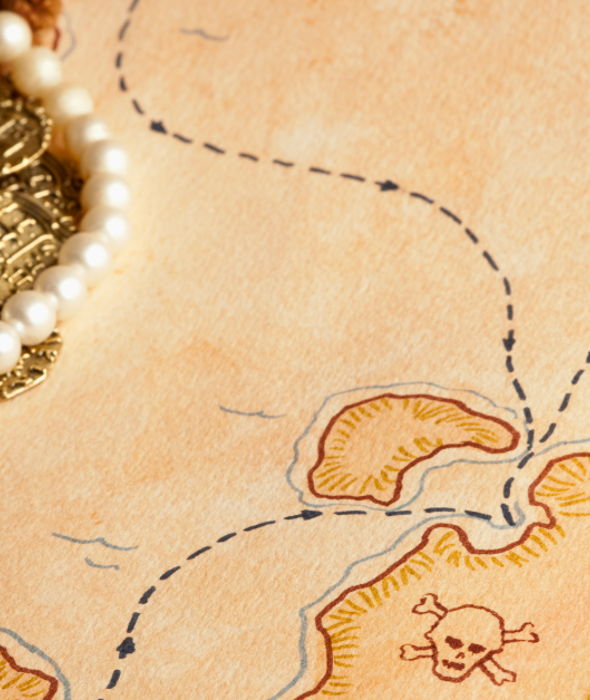
Share this Post

Need help with your money or investments? Book a consultation to learn more about working together.
How to Find Unclaimed Money – A Step‑by‑Step Guide to Reclaim What’s Yours
Have you ever wondered if there’s money out there with your name on it?
You might be surprised to learn that billions of dollars in unclaimed property are sitting in state treasuries and other agencies across the U.S., just waiting to be claimed. This could include forgotten bank accounts, uncashed checks, refunds, insurance payouts, or even proceeds from stock sales.
Before you get too excited, be aware that most unclaimed funds are fairly small amounts.
But finding and reclaiming this money generally isn’t difficult, and it can be worthwhile to spend a little time searching.
What Is Unclaimed Money?
Unclaimed money, or unclaimed property, refers to financial assets that have been inactive or forgotten by their rightful owner. After a certain period (often between 1 and 5 years) companies are required to hand over these funds to state-run unclaimed property programs.
Common types of unclaimed money include:
- Dormant bank accounts
- Uncashed paychecks
- Security deposits
- Insurance policy payouts
- Stocks and dividends
- Refunds or rebates
- Safe deposit box contents
If a company has tried and failed to contact you, and the funds go unclaimed, they eventually end up with the state.
Why Does Money Go Unclaimed?
Life happens. People move, change jobs, or forget about small balances. Maybe you switched banks or never received a check in the mail. Even something as simple as a misspelled name or outdated address can prevent you from receiving money that’s owed to you.
This is especially common during big life transitions, such as graduating, getting married, buying a home, or changing careers.
Who Should Search for Unclaimed Money?
Everyone!
No matter how organized you are, it’s worth taking a few minutes to check. You could be owed money and not even know it. And if you’ve ever managed a loved one’s estate, you might also find unclaimed funds tied to them.
This is one of those rare financial "to-dos" that could actually bring in unexpected income.
How to Search for Unclaimed Money
Let’s walk through the process of finding and claiming your money.
Step 1: Start with Your State's Unclaimed Property Website
Every U.S. state has a treasury or unclaimed property division where you can search for unclaimed funds under your name. Use the National Association of Unclaimed Property Administrators (NAUPA) website. This is the official resource and links directly to each state’s database.
Because there's no national database, you’ll need to check each state where you've lived, worked, or done business.
Step 2: Check the Federal Government’s Databases
Not all unclaimed money is handled by the states. The federal government maintains its own lists for certain types of funds. Here are a few places to check:
- IRS refunds: If you think you missed a tax refund, go to irs.gov/refunds.
- Treasury bonds: Search for forgotten savings bonds at treasurydirect.gov.
- Pension funds: Use the Pension Benefit Guaranty Corporation’s search tool at pbgc.gov/search/unclaimed-pensions.
- FDIC and NCUA: If a bank or credit union where you held funds closed, check closedbanks.fdic.gov/funds and ncua.gov).
Step 3: Search for Insurance and Investments
If you’ve ever had a life insurance policy, 401(k), or investment account that’s gone quiet, those funds may be sitting unclaimed.
Try these:
- Life insurance: Search the National Association of Insurance Commissioners (NAIC) Life Insurance Policy Locator.
- MissingMoney.com: Another NAUPA-endorsed resource that aggregates many state databases into a single search.
Step 4: Claim Your Money
Once you find a match, follow the claim instructions. Most states will ask for:
- Proof of identity (e.g., driver’s license, Social Security number)
- Proof of address at the time the funds were reported (e.g., utility bill, tax return)
- Any documentation tying you to the unclaimed account or check
It’s usually free to file a claim. Beware of third-party services that charge fees.
How Long Does It Take to Receive the Money?
It depends on the agency, but most claims are processed within a few weeks to a few months. If your documentation is clear and complete, you can expect a smooth process.
Can Unclaimed Property Be Taxed?
It depends on the source of the funds. If the unclaimed money comes from wages or investment income, it may be taxable. In contrast, insurance proceeds or refunds may not be.
Always report the income on your tax return when applicable. If you're unsure, this is a good time to talk to a tax professional.
What About Deceased Relatives?
You can also search for unclaimed money on behalf of a deceased relative, especially if you’re the executor of their estate. The process is more complex and usually requires additional documentation, such as:
- Death certificate
- Will or probate documents
- Your own identification
Many people discover old bank accounts or insurance benefits this way.
Keep This on Your Financial Checklist
Checking for unclaimed money isn’t something you need to do frequently, but every few years would be a reasonable schedule. It’s a low-effort task that could yield a nice surprise. And it’s another way to stay proactive and engaged with your financial life.

